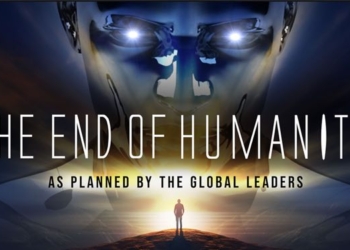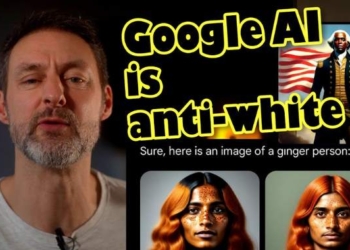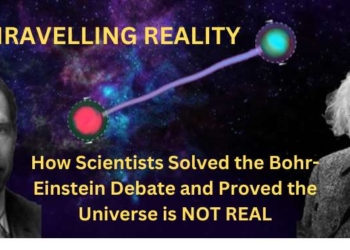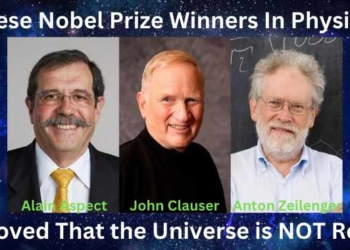
By Amanda Monteiro | Collective Evolution
Every day, people are reading books, watching documentaries, and seeking help with the intention of getting to know themselves better. The rise of self-help books – increasing 13.6% from 2005 to 2008 — speaks for itself, as does the $11 billion we spend on self-improvement books, CDs, seminars, coaching, and stress-management programs. We’re all working hard to scrape away bad habits we’ve carried on since childhood and new ones we’ve adopted as adults so we can better navigate the stressful lifestyles we’ve been pushed into.
There are certain methods that allow us to better prepare ourselves when it comes to how we respond to everyday aggravations. We can meditate, journal, and seek out help from our partner, friend, or therapist. These tools help to quiet our mind and, sometimes, if we’re lucky, offer us glimpses of our true Self. Now, what does this have to do with our personalities?
There is no clear definition of what a personality is, but it’s theorized to be a conjunction of habits, environmental influences, and past interactions and experiences. Psychologists have even gone so far as relating our personalities to our birth order, and how we were disciplined growing up. The definition of personality that I resonate most with is the traits that predict a person’s behavior, defined by Raymond Cattell. Cattell discovered the 16 separate primary trait factors within the normal personality sphere and created the 16 personality factor model with Maurice Tatsuoka and Herbert Eber. It’s based on decades of empirical research that psychologists and mental health professionals use today as an instrument to help diagnose psychological disorders. It can also help individuals better understand which career is best suited for them.
That being said, labels and definitions of you shouldn’t really be taken too seriously. Something like this is not the most helpful tool to describe you or who you are. Sometimes with information like this, one can take on the label and its characteristics which they are told best suits them. Sure it may assist us in our lives, but nobody can really tell you who you are. Just be yourself, and let go of the need to be defined with a specific label, don’t put yourself in a box.
16 Personality Types
Most of us are familiar with Carl Gustav Jung, the Swiss psychiatrist, and psychoanalyst who founded analytical psychology, also known as Jungian psychology. It uses psychological methods based on regular interaction to help people overcome their problems, and “emphasizes the importance of the individual psyche and the personal quest for wholeness,” an idea we celebrate here at Collective Evolution, given that each human being on Earth has separate needs and wants and should be treated accordingly.
Katharine Cook Briggs and her daughter Isabel Briggs Myers were inspired by Jung’s theory, that humans experience the world using four principal psychological functions — sensation, intuition, feeling, and thinking — and that one of these four functions is dominant for a person most of the time. Katherine and Isabel utilized this theory and created the Myers–Briggs Type Indicator (MBTI) in 1944, a simple way to describe the order of each person’s Jungian preferences.
Mind, Energy, Nature, Tactics, and Identity are the five personality aspects that, combined, create and define personality type:
Mind: Extroversion vs. Introversion
Energy: Sensing vs. Intuition
Nature: Thinking vs. Feeling
Tactics: Judging vs. Perceiving
The 16 personality types are:
- Architect (INTJ, -A/-T)
- Logician (INTP, -A/-T)
- Commander (ENTJ, -A/-T)
- Debator (ENTP, -A/-T)
- Advocate (INFJ, -A/-T)
- Mediator (INFP, -A/-T)
- Protagonist (ENFJ, -A/-T)
- Campaign (ENFP, -A/-T)
- Logistician (ISTJ, -A/-T)
- Defender (ISFJ, -A/-T)
- Executive (ESTJ, -A/-T)
- Consul (ESFJ, -A/-T)
- Virtuoso (ISTP, -A/-T)
- Adventurer (ISFP, -A/-T)
- Entrepreneur (ESTP, -A/-T)
- Entertainer (ESFP, -A/-T)
You can find out which personality you are here.
Here’s How to Tell If You’re an INFJ Personality Type
INFJ people are amongst the rarest of personalities, occupying less than 1% of the population. They are more Introverted, Intuitive, Feeling, and Judging. These individuals are active dreamers, as they don’t wait for their dreams to manifest, but rather create plans and concrete steps to realize their goals to make a sustainable, positive impact.
INFJs are altruistic in nature and are often found engaging in charitable tasks, but what truly sets them apart is their drive to create a world where people don’t need saving. They see the good in all beings and do not hold anyone at a higher or lower standard than them. They see all beings as equal and deserving of attention, comfort, and compassion.
People are very attracted to the warmness that INFJs exude, and usually feel very comfortable around them, often finding themselves divulging their deepest fears, secrets, and dreams. This type speaks in a language of energy and empathy, which forms a sensitive language that creates a safe environment for all. Close friends would label these individuals as extraverted and strangers would assume them to be introverts. This combination can be very tiring, so it’s important they allow themselves alone time to decompress and reconnect to themselves.
INFJs are highly intuitive and can tell someone’s true character within minutes of meeting them. They do not care for anything or anyone who is inauthentic or those they perceive to be dishonest, deceitful, or ineffectual. This doesn’t necessarily categorize them as judgemental, but just shows they truly know what they like. If any of their friends exhibit these behaviors, however, they are far more forgiving, as they have a full understanding of who that individual is and understands that their actions are based on insecurity and past trauma. They stray away from small talk, as they prefer deeper conversations that stimulate a positive energy exchange. They want to know the depths of your soul, what you’re passionate about, what you want to achieve in life, and how and if you’re interested in helping mankind.















